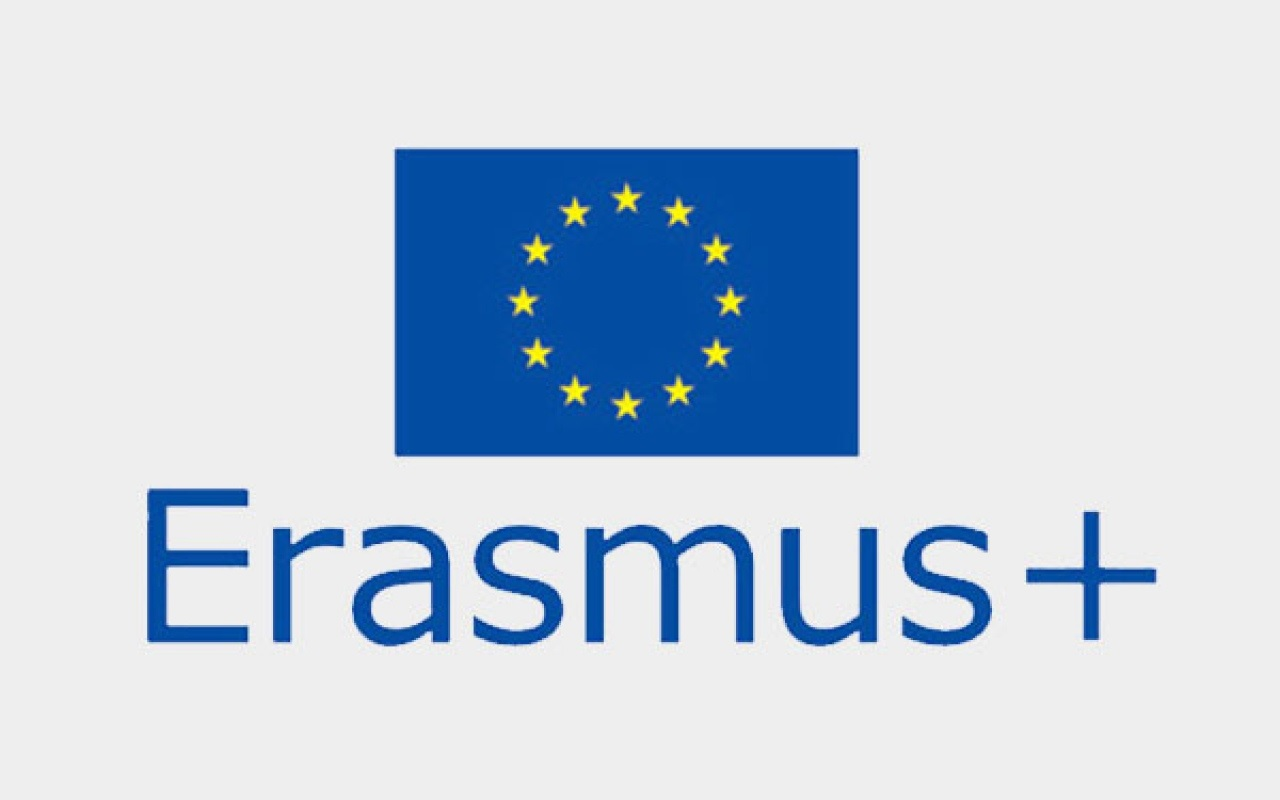
The Erasmus+ program is one of the key initiatives of the European Union aimed at supporting education, youth and sports. In Kazakhstan, this program plays an important role in promoting international cooperation and knowledge exchange between countries.
The main goal of Erasmus+ in Kazakhstan is to improve the quality of education and increase the mobility of students and teachers. The program provides opportunities for exchange of students and teachers between universities in Europe and Kazakhstan, which contributes to the enrichment of knowledge and cultural exchange.
One of the key partners of the Erasmus+ program in Kazakhstan is KazNARU (Kazakh National Agrarian Research University). This university actively participates in various projects and initiatives aimed at improving the quality of education and increasing the international mobility of students and teachers.
The Erasmus+ program also promotes international cooperation between universities and research centers. It allows participating institutions to exchange experience and knowledge, which contributes to improving the quality of education and research.
An important aspect of the Erasmus+ program in Kazakhstan is support for young people. The program provides opportunities to participate in various activities and projects aimed at developing the skills and competencies of young people. This contributes to their personal growth and preparation for future professional activities.
KazNARU actively participates in numerous projects and initiative groups, which allows our students and faculty to receive unique opportunities for growth and development. The University participates in international conferences, seminars and research, which makes it one of the leading universities in the region. Interaction with KazNARU and other institutions allows the Erasmus+ program to achieve its goals and contribute to the improvement of the quality of education and international cooperation. The program continues to develop and expand its opportunities, which makes it even more significant for Kazakhstan and Europe.
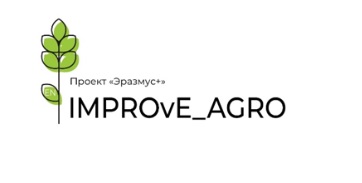
Internationalization of Master's programmes in Agriculture through teaching in English language
Program: Erasmus+
Key action: Cooperation in innovation and exchange of practices
Action: Capacity Building in Higher Education (CBHE)
Action Type: Collaborative projects. Curriculum Development
Project Name: Internationalization of Master's programmes in Agriculture through English language teaching - IMPROvE _AGRO
Project Number: 609563-EPP-1-2019-1-DE-EPPKA2-CBHE-JP
Project implementation period: 15.01.2020 - 14.01.2023
Project Objectives:
- To contribute to the modernization and internationalization of the societies of Kazakhstan, Mongolia and Russia by enhancing their capacity to internationalize Master programs by bringing them to EU quality standards, introducing English as the language of instruction (English Medium Instruction -EMI), and introducing the Blended learning format;
- promote mobility of students and teachers between Asian and European universities training specialists in agriculture and forestry;
- increase accessibility of higher education, especially for the most vulnerable groups;
- promote joint degrees (double/multiple degrees).
The main approach adopted by the project is to modernize and develop key modules within the educational disciplines in the areas of agricultural and forestry training, which is a common regional priority for all non-European partners. Thus, the project aims to strengthen
regional cooperation between Kazakhstan, Mongolia and Russia, and to create new perspectives for international cooperation between these countries and the EU, which in turn contributes to the overall reform of national higher education systems.
The objectives of the project are:
1. To develop a new model for internationalization of Master's programs.
2. Expand teaching capacity in higher education institutions through retraining of staff and modernization of teaching resources.
3. To create multi-lingual e-learning opportunities for Master students, to improve their access to learning resources internationally.
4. To develop and introduce new modules in Master's study programs of HEIs in EU partner countries, which will be taught in English (EMI) in a blended learning format and in accordance with EU quality standards.
5. Build capacity for internationalization through increased international academic mobility.
Consortium:

Improving postgraduate training in sustainable agriculture and agro-systems of the future is funded by the European Commission under the Erasmus + program Capacity Building Projects in Higher Education (E+CBHE)
Project number: 610383-EPP-1-2019-1-DE-EPPKA2-CBHE-JP
The project addresses the need for doctoral students to be trained to high quality and international standards to increase knowledge based on solutions for sustainable agriculture and future farming systems - a topic of national, inter-regional and international importance.
Large agricultural areas characterize the landscapes and economies of Russia and Kazakhstan, and both countries consider innovative development of this sector as a priority. In comparison, there is a lack of skilled labor and innovation capacity. As a result, a number of initiatives have focused on building human resources at all levels (agricultural workers, specialists, managers) as well as improving the performance of higher education institutions (HEIs). Despite the progress in accession and implementation of the Bologna Process, the “brain drain” of young talents as well as imperfect and outdated educational offerings for doctoral studies hinder HEIs' goals of international competition.
A consortium of 5 EU partners and 4 Russian and 4 Kazakh agricultural universities together with advisory and expert partners from the field of accreditation, research and private business in Russia and Kazakhstan have thus defined the following objectives.
(1) to develop and establish four postgraduate modules in 8 universities in different regions to qualify doctoral students in interdisciplinary and transdisciplinary content and approaches relevant to agricultural research and innovation;
(2) enhance the human resource capacity, literature base and equipment of partner institutions to provide doctoral education in line with international standards and best practices;
(3) strengthen international and inter-regional academic exchange and research cooperation among project partners;
(4) establish a network for doctoral research and education in agriculture aimed at sharing best practices with a wider audience.
Overall, institutional capacity to meet the demand for education and research on sustainable agriculture and future farming systems is increased.
Project 5744056-ERR-1-2016-PL-EPPKA2-CBHE-SP SUSDEV “Lifelong Learning for Sustainable Development”
The project aims to strengthen the role of higher education institutions in sustainable development of industry and society, support national green policies in partner countries and promote green culture through lifelong learning.
The objectives of the project are to develop modules to stimulate green skills for different target groups and skill levels; to ensure access of target groups to discover educational resources; to improve green culture and continuing education through training of teaching staff, external stakeholders and public administration; to increase the importance of green skills in education and working life. The project coordinator is the Warsaw University of Natural Sciences represented by Prof. Stefan Ignar.
The project includes 6 Kazakhstani universities: Kazakh National Agrarian University, Kazakhstan Agrarian and Technical University named after S. Seyfullin, West Kazakhstan Agrarian and Technical University named after Zhangir Khan, Atyrau State University, Taraz State University named after M. Dulati and Kostanay State University named after A. Baitursynov. The project coordinator from Kazakhstan is the Kazakh National Agrarian University.
http://www.susdev.confer.uj.edu.pl/start
Project features
Green skills will be promoted to different types of learners through lifelong learning channels and new IT opportunities, starting from the results of previous projects on curriculum development and sector qualifications frameworks, for three additional subject areas that define a better quality of life (environmental science, food science and land management).
The development of green skills improves the quality of courses and has a positive impact on qualifications framework descriptors. Thus we have a 'flywheel effect': teachers get a boost from the continuous improvement model.
A systems approach based on the methodology of “complex adaptive systems” will be used. It will provide a theoretical basis for designing, testing and triggering “self-organization” mechanisms within the consortium and will support feedback mechanisms between the project and its environment.
The project activities and outputs will be precautionary in nature, preparing the target groups for future challenges and demands. Although various green agendas are present in public spaces, awareness of the importance of sustainable development and future needs for green skills and green jobs is still low at the level of both education providers and labor market agents.
Raising this consciousness should lead to increased self-reflection regarding responsibility for the future of our society.
Actions
Work package 1: Analysis of green policies and practices in the European Higher Education Area and partner countries.
1.1 European Union situation report (prepared)
1.2 Report on the situation in partner countries (prepared)
1.3 Stakeholder Opinion Report (in process)
Work Package 2. Creation of Open Educational Resources (OER) 2.1 Creation of OER Repository (in process, to be updated with new data)
2.2 Creation of Green OER Network and its rules (laws) - (to be created in the third year of the project)
Work package 3. Establishment of Green Training Centers (GTC).
3.1 Establishment of training centers in each partner university (not all universities are open, regulations on opening of centers are needed).
3.2 Training of staff of partner universities on new teaching methods and information management (trainings are organized at each project meeting).
Work package 4. Development of green training modules.
4.1 Development of training modules on food safety.
4.2 Development of training modules on land management.
4.3 Development of training modules on Ecology
Work Package 5. Introduction (implementation) and updating of training courses.
5.1 Introduce (implement) and update training courses on Green Skills for Food Security
5.2 Introduce (implement) and update Green Skills training courses for Land Administration
5.3 Introduce (implement) and update Green Skills training courses for Ecology
Work Package 6. Quality control and monitoring.
6.1 Guidelines for quality management and assessment
6.2 Documentation on continuous monitoring and evaluation of project activities
6.3 Documentation on evaluation of project results
6.4 Internal Evaluation Report
6.5 External evaluation report
Work Package 7. Dissemination and utilization of project results.
7.1 Dissemination documentation
7.2 Dissemination and sustainability plan
Work package 8. Project Management.
8.1 Project website
8.2 Project documentation
8.3 Minutes of project meetings
8.4 Project reports
FP4-PP5: Orientation - Foodstuffs
Courses prepared:
The Green Skills in Food Processing module for the Master's program consists of 3 disciplines:
- Resource-saving technologies in the food industry (5 ECTS)
- Waste utilization and recycling in the food industry (5 ECTS)
- Packaging Technology in the Food Industry (5 ECTS).
Course “Green Skills in the Food Industry” (5 ECTS) for Bachelor's degree.
Green Skills in Food Processing course (36 contact hours) for specialist training.
Modules and courses will be included in the curriculum in the 2019-2020 academic year.
FP4-PP5: Direction - Land Management
The prepared course Environmental and Landscape Management of Areas - (3 ECTS), for the Master's program, has been included in the 2018-2019 curriculum
RP4-RP5: Direction - Ecology
Prepared course Environmental safety of agricultural products (5 ECTS) for the Master's program. It will be included in the curriculum in the academic year 2019-2020.
FP3: Training Center
1. Organizational aspects, etc.
Planning for the opening of the center. Documentation of the center is being prepared
2. equipment purchased with SUSDEV funds.
Equipment has not been purchased yet, due to the public procurement portal
3. Activities carried out so far
No activities have been observed
4. Sustainable development strategy
Sustainable development will be ensured by providing training to professionals and distance learning students at the Center. In addition, a methodologist has started working at the Center.
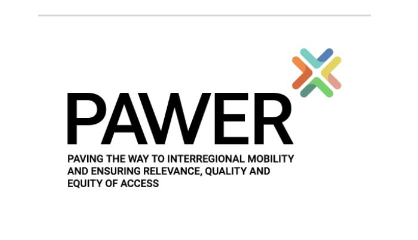
Main idea of the project
The growing role of EHEA (European Higher Education Area) is a reference point for policy dialog between the European Union and several regions of the world in higher education.
Partner universities: Italy, Poland, Hungary, Great Britain, Georgia, Mongolia, Uzbekistan, Tajikistan, Kazakhstan, Kyrgyzstan, Russia, Azerbaijan.
Main objectives: mobility and internationalization
Additional objectives: interregional integration and cooperation
Main objectives:
Key role - employability of graduates.
Accelerating mobility between EHEA (European Higher Education Area) and other regions.
Need to harmonize credit allocation and classification system across regions.
Additional objectives:
Promote inter-regional integration and cooperation by developing robust joint instruments to enhance the international dimension of higher education systems and compatibility between the four regions and EHEA (European Higher Education Area)
To support the modernization, accessibility and internationalization of 23 universities from 8 countries belonging to 4 different regions.
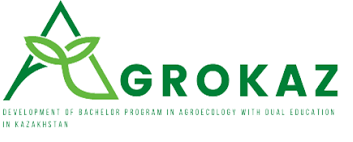
The project aims to develop and implement the sustainable dual study undergraduate program in Agroecology at three universities in Kazakhstan as well as to establish lifelong courses for professionals. In the modern agriculture, developing resource-saving technologies for the cultivation of agricultural crops, methods for producing high-quality crop products, effective ways of reproducing soil fertility, and methods of agroecological monitoring allows not only to survive despite all challenges, but also to successfully deal with fierce competition. The project aims to develop and implement the sustainable dual study undergraduate program in Agroecology at three universities in Kazakhstan as well as to establish lifelong courses for professionals. In the modern agriculture, developing resource-saving technologies for the cultivation of agricultural crops, methods for producing high-quality crop products, effective ways of reproducing soil fertility, and methods of agroecological monitoring allows not only to survive despite all challenges, but also to successfully deal with fierce competition.
The main goal of the project is to reduce the gap in the structure, volume and quality of labour resources from the real requirements of specific farms/enterprises and to educate professionals with competencies related to modern technologies. The (re)design of the educational program in agroecology in Kazakhstan through establishment of sustainable, internationally oriented dual study program will make students better prepared for all challenges facing agriculture in the future.
European partners: University of Novi Sad (Serbia), Josip Juraj Strossmayer University of Osijek (Croatia), Democritus University of Thrace (Greece).
Kazakhstani partners: Kostanay engineering and economics university named after M.Dulatov, Toraighyrov University, Kazakh Research Institute of Plant Protection and Quarantine named after Zhazken Zhiembaev.
Web-page: www.agrokaz.kineuprojects.kz
Erasmus+ Capacity Building in Higher Education
Project Nо: 101082564
Project coordinator: University Novy Sad
.png)
Edu-Fusion Network for Sustainable Growth is an integrated approach designed to transform higher education in Kazakhstan, focusing on aligning educational outcomes with labor market demands and promoting sustainable growth and job creation. The Project aims to create an ecosystem involving tight links between industry and academy, training and certification of educators and providing online courses relevant to market needs to ensure sustainable growth and entrepreneurship raise at national level in Kazakhstan.
The main outputs of the EduFusion NSG will be:
•Academia-Industry Collaboration Portal (AICP) will provide a bridge for partnerships between educational institutions and business sector. This portal facilitates joint surveys, projects and internships, focusing on skills crucial for value chain development and entrepreneurship.
•Teacher Development and Support System (TDSS) will offer accredited training for educators, focusing on modern teaching methodologies and addressing educational disparities. This system will allow teachers to be internationally certified ensuring up-to-date skills and implementation of modern and adequate pedagogical approaches.
•Virtual STEAM & Entrepreneurship Academy (VSEA) will be created to offer accredited online courses in STEAM and entrepreneurship, emphasizing gender inclusiveness and climate neutrality. This academy will provide cutting-edge curricula for students and professionals and ensure that these courses meet high quality standards and are directly relevant to market needs.
Edu-Fusion NSG stands out for its commitment to accredited, high-quality professional development programs and teaching methodologies. Its innovative approach ensures that trained educators and designed courses in STEAM & Entrepreneurship meet stringent standards, aligning education with the evolving needs of the labor market and fostering an ecosystem conducive to sustainable economic growth and job creation in Kazakhstan.
PARTICIPANTS
The "Edu-Fusion Network for Sustainable Growth (EDUFUSION NSG)" is a pivotal Erasmus+ project dedicated to transforming higher education in Kazakhstan through robust international collaboration. This initiative, officially titled "Edu-Fusion Network for Sustainable Growth (EDUFUSION NSG)," unites a consortium of distinguished institutions from both Kazakhstan and the European Union.
From the European Union, the Polytechnic Institute of Porto, Portugal, and University of Vigo, Spain, play a crucial role, having hosted the project's kick-off meeting and serving as a key partner in guiding its strategic direction.
In Kazakhstan, the project involves a comprehensive array of academic and governmental bodies. Participating universities include:
- Al-Farabi Kazakh National University
- Satbayev University
- Saken Seifullin Kazakh Agrotechnical University
- D. Serikbayev East Kazakhstan Technical University
- Karaganda Buketov University
- Kazakh National Agrarian Research University
- Central Asian Association for Accreditation of Education
Additionally, the Ministry of Education and Science of the Republic of Kazakhstan are integral partners, ensuring the project's outcomes align with national educational standards and policy.
This diverse collaboration aims to forge strong links between industry and academia, enhance educator training, and develop relevant online courses to foster sustainable growth and entrepreneurship within Kazakhstan's higher education landscape.
Coordinator
- INSTITUTO POLITECNICO DO PORTO
- RUA DR ROBERTO FRIAS 712
- 4200-465 Porto
- Portugal
- Website: https://www.edufusion-nsg.com/
- Instagram: https://www.instagram.com/erasmus_edu_fusion_project_kz
- Phone: +351225571003
EDUFUSION: DOCUMENTS, NEWS AND UPDATES
- 2025 JULY 22-24: EDUFUSION NSG INTERNATIONAL WORKSHOP IN UNIVERSITY OF VIGO, Spain
- 2025 07 KazNARU Press Report EDUFUSION NSG INTERNATIONAL WORKSHOP IN VIGO
- Erasmus+ EduFusion NSG International Workshop: Innovative Approaches to Higher Education Development at KazNARU
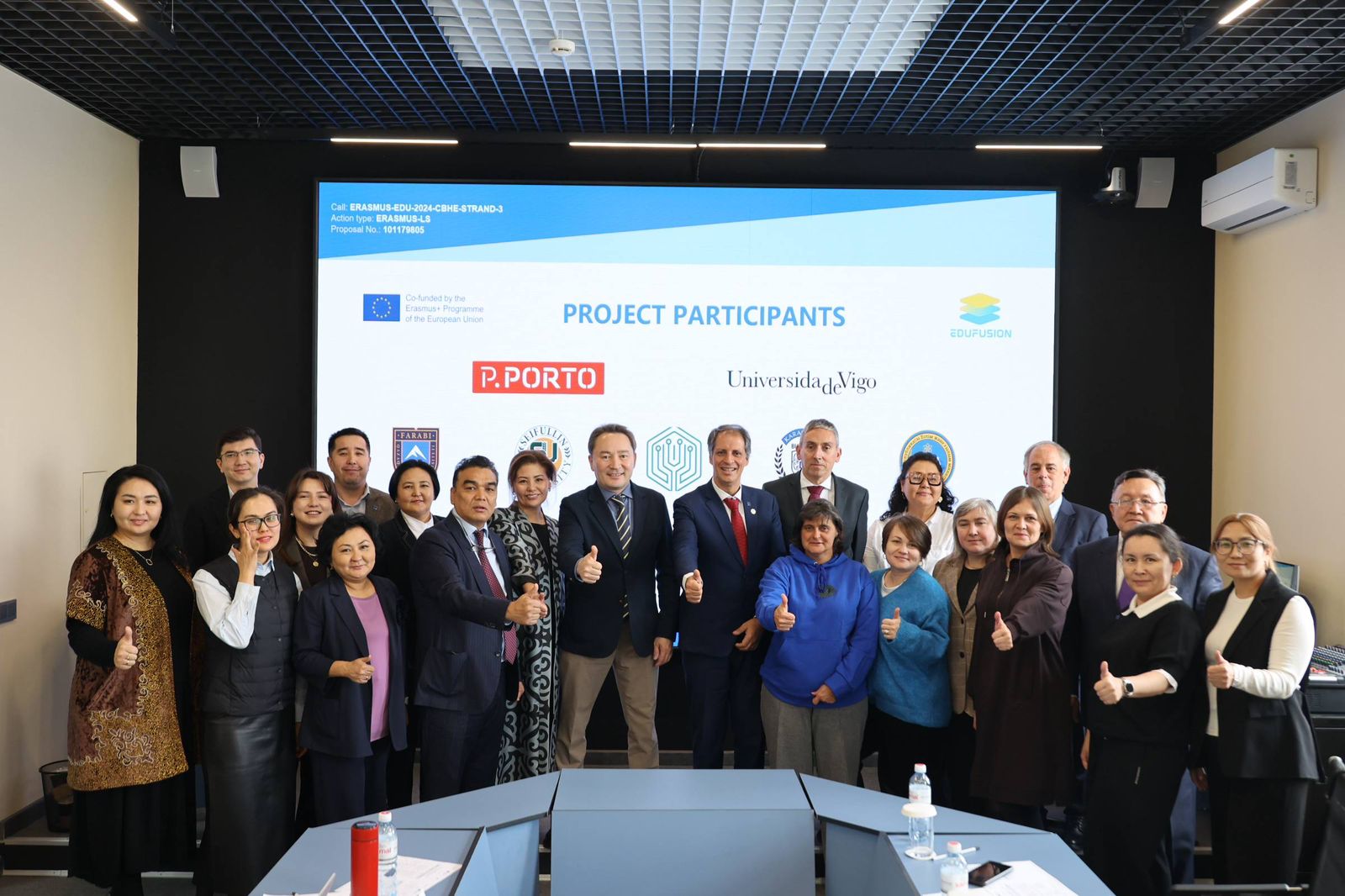
DEVELOPMENT OF COMPETENCIES OF CENTRAL ASIAN UNIVERSITIES IN AGRARIAN POLICIES FOR ENVIRONMENTAL PROTECTION AND LAND MANAGEMENT (ECAP) No 561590-EPP-1-2015-SK-EPPKA2-CBHE-JP
http://ecap.uniag.sk/ru
The project is based on the need to strengthen and raise awareness in the field of environmental protection and land management in the framework of agricultural policies required for implementation in Kazakhstan and Uzbekistan.
The main objective of the project is to increase the level of competencies and skills in Central Asian universities (universities in Uzbekistan and Kazakhstan) by providing them with innovative curricula in the field of “Environmental Protection and Land Management”.
Project objectives:
To develop innovative curricula within a relevant training program to improve the quality of education in Central Asian countries in the field of environmental protection and land management in the context of the new Common Agricultural Policy (CAP);
raise awareness of Central Asian students on legal instruments supporting ecological agricultural practices;
create a partnership of higher education institutions in Europe and Central Asia that can benefit from mutual support for environmental and land management education; exchange knowledge and skills on ecological farming practices and legal instruments developed in the field of environmental protection and land management.
Project target group: teachers and experts from partner universities in Kazakhstan and Uzbekistan.
